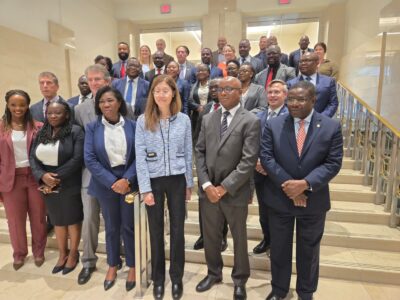ActionAid Zambia (AAZ) has called on government to ensure that the needs of the public are prioritized as they implement the International Monetary Fund (IMF)’s structural benchmarks.
Organisation Interim Country Director, Jovina Nawanzake, noted the need for government to balance the protection of citizens with their macroeconomic stability actions.
Nawanzake said this in a statement issued in Lusaka on Monday and made available to Zambia Monitor.
She said the boosting of revenue collection through progressive taxation and the effective restructuring of public debt beyond bilateral creditors remained crucial for this.
“The Government must also ensure that there is an enabling environment for the smooth delivery of social protection programmes outlined in the 2024 National Budget,” Newanzake advised.
She called on government to get rid of some previous challenges such as delayed receipts and non-receipt of social cash transfer funds for some eligible citizens.
Nawanzake expressed concern with the high increase in the prices of petroleum goods which was related to the IMF programme.
“The pass-through effect of these changes, coupled with the rapid depreciation of the Kwacha has adversely affected the country’s inflation rate that remains above the targeted upper bound of nine percent and continues to erode the incomes of households,” she said.
Nawanzake refuted the claim by the government that fuel subsidies only benefit a minority of the Zambian population.
“Since the IMF Board approved the SDR 978.2 million (USD 1.3 billion) in August 2022, their structural benchmark to remove the subsidy on fuel has effectively increased fuel prices by 58.7 percent for petrol and 39 percent for diesel from September 2022,” she noted.
Nawanzake added that her organization was aware of the IMF’s condition to implement a cost-plus pricing model that adjusts prices every 30 days and reinstatement of VAT and excises taxes on fuel.
“We are also cognizant of the delayed public debt restructuring and its negative effects on the economy.
There is need for the government to truly foster an enabling environment for local Small Medium and Enterprises,” she said.
Nawanzake stated that with fuel being a key factor of production, the monthly adjustment in fuel prices had reduced business’s ability to forecast, plan and be profitable.
Read More: IMF projects withdrawal of fiscal support by major economies towards emerging markets
She further called for an increment in the pricing cycle for petroleum products and zero rate the VAT applied to cushion the market changes that were otherwise absorbed by poor consumers.
“The Government must also consider cost effective alternatives in the oil supply chain such as the already existing TAZAMA pipeline to reduce the transport cost and influence of suppliers in the domestic market,” Nawanzake advised.
She feared that poverty levels might continue rising especially among the already marginalized in the country such as women and the young people.
WARNING! All rights reserved. This material, and other digital content on this website, may not be reproduced, published, broadcast, rewritten or redistributed in whole or in part without prior express permission from ZAMBIA MONITOR.













Comments